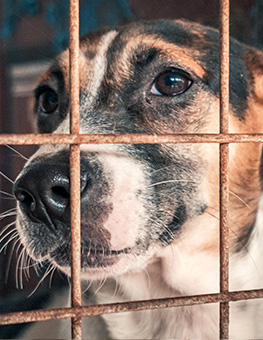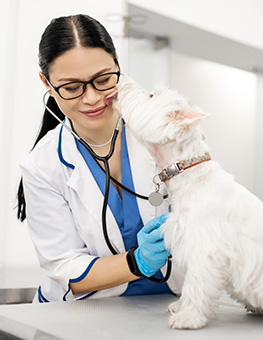Keeping your Dog Safe during Flu Season
Pretty much every human on Earth knows the signs of flu season - that time of year when, suddenly, everyone is coming down with a bad case of influenza.
But did you know that the flu can be contracted by dogs as well? While you know how to take care of yourself, taking care of your dog and protecting him or her from the dangers of influenza can be tricky.
The flu that dogs contract, called canine flu or the subtype H3N8, according to the American Society for the Prevention of Cruelty to Animals, is a highly contagious viral infection that dogs will show symptoms of for anything from a week to a full month. It's rarely fatal, and most of the symptoms are easily and quickly spotted, as they're commonly respiratory, like kennel cough. In more severe cases, other symptoms may include sneezing, runny nose or even fever. H3N8 is often only fatal when combined with pneumonia or bacterial infections.
While people haven't been known to contract H3N8 from their pets, the virus is contagious among dogs and spreads through the air. Understandably, this flu strain tends to show up and spread in areas where dogs live in large numbers and are close together. Since there's no current cure for the canine flu, if your dog should come down with a case, keep him or her hydrated and comfortable and contact the vet as needed.
The best way to help your dog out is through prevention. Avoid dogs that are infected with the virus and, if your pet should come down with canine flu, steer clear of the dog park and let neighbors with pets know ahead of time. The canine flu, H3N8, is a relatively young virus and one that's still mutating and changing. The Centers for Disease Control and Prevention (CDC) reports that a strain of the virus was known to exist in horses for more than 40 years, but it started affecting dogs around 2004 as a respiratory illness - specifically in Greyhounds - likely due to close-quarter living environments at dog tracks. According to the CDC, the virus has been identified by experts as "a newly emerging pathogen in the dog population." Keep in mind that one of the best ways to keep your dog healthy is to stay aware and educated about health concerns, talk to your vet for further information.
This content post is provided by the pet experts at Hartz.

















